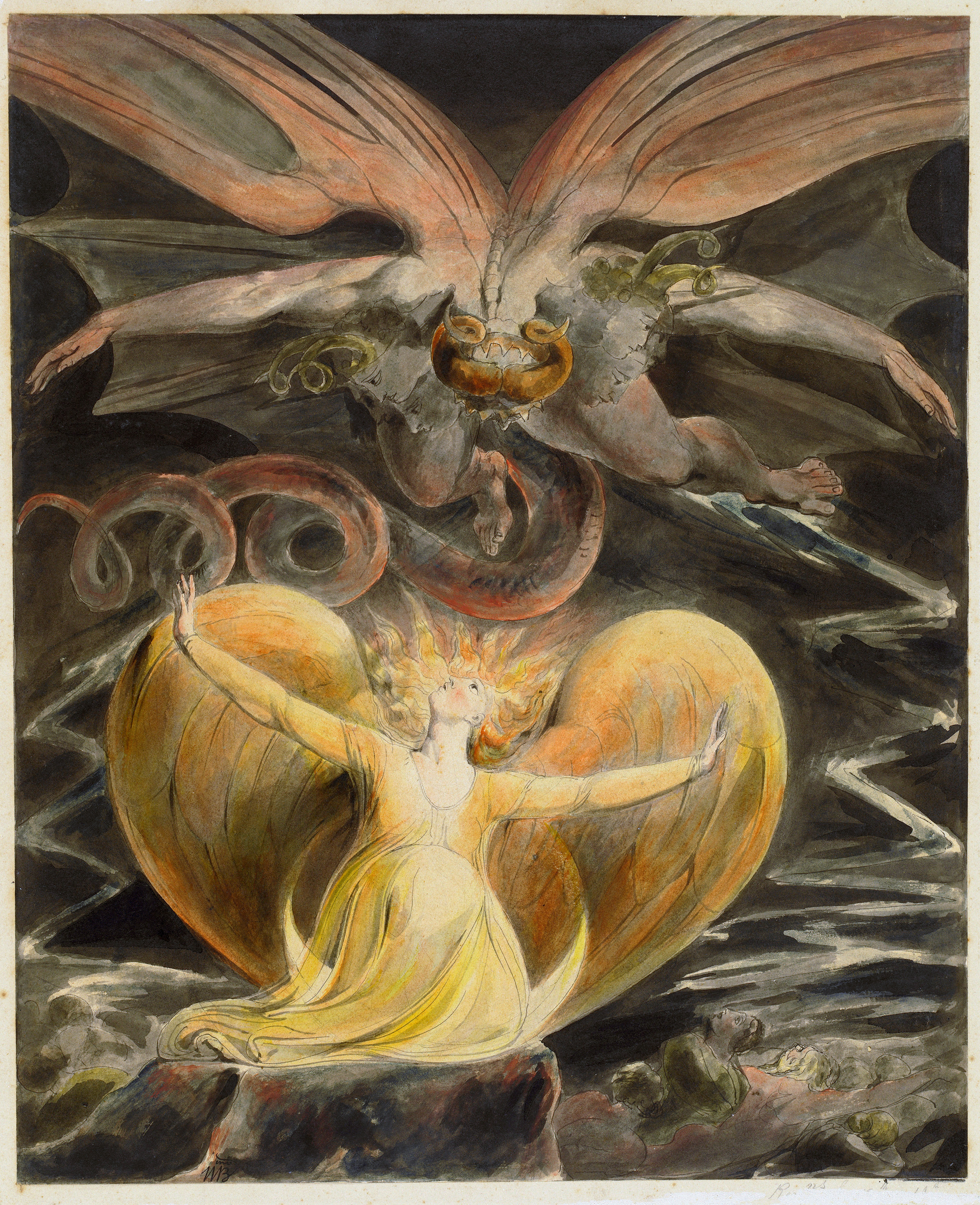
"Perfection/imperfection aren't complementary, either. Rather, imperfection is again a deprivation, a declension from the Absolute, as the celestial rays proceed from the vertical cosmic center to the periphery, which, as Schuon has written, "tends" toward a nothing that can never actually be realized. But the hardcore leftist feels a sort of
frisson in riding the winds of the ray of creation all the way into the darkness of nihilism. The thrill of the fall, so to speak."
Schuon channeled via
OneCosmos.
Incidentally, lately I've been contemplating the relationship between NeoPlatonism and Christianity. This is partly because
Radical Orthodoxy has re-opened an old debate over Platonism, partly because theologians like Clark Pinnock (The Openness of God/I'm too good for classical Christianity) and others are busy running around complaining about the "static-ness" of Western Christianity (and advocating Loving God Through Eternal Change), and partly because Saint Paul himself endorses or rejects cultural forms/philosophies in Scripture. Being a Southron by birth, genetics, Fate & choice, NeoPlatonism is dangerous territory. We tend to think in terms of concrete materiality & personalities, and NeoPlatonism is a little, shall we say, over-refined?
One thing all the literature agrees upon is that Christianity irrevocably changed Platonism when it insisted upon creation
ex nihilo. Things, however, often mingle and change each other in both directions. Hegel, for instance, managed to mingle classical mores with Christianity, and end up with neither.
However, even though Credenda Agenda
itself went on the offensive against NeoPlatonism, and you can read a seriously informed response
here. Now, whenever someone really gets up in arms against something, I get interested, and am generally either "all on board" or begin looking for holes.
Neo-Platonism, as far as I can tell, represented a Western version of an esoteric Eastern doctrine, and as such, is a counter balance to the discrete, material, juridical, and dialectical thought-forms that most "Western" thought tends to adopt without even knowing it. Westerners are always "hung up" over some distinction which they can't counter-balance. Over time, this leads to bad things. Liberals, for instance, are so obsessed with individuality, that they have effectively replicated themselves in weaker form over and over and ended up denying the very thing they wished to save. "We had to destroy the village in order to save it".
In this context, nothing says obsession, permanence, and thought-meme more than insisting
ad nauseam that all of Western Christianity is obsessed with Plato and needs to adopt an "Eternal Change is Good, Just Love God" intellectual posture. Is anything more permanent than Eternal Change? Is anything more constraining to an individual than a world in which he/she is reduced to being a disembodied "atom", with no "intermediary" institutions (R. Nisbet) between himself and the infinitely progressive-State? Is anything more despotic than the feel-good sorcery-State that doesn't rule, but merely "moulds and controls", down to the last atom of society?
The answers to these questions are obvious when they are asked, at least obvious to those who believe some Life should exist forever outside the purview of the State. Europe, the home of Christianity's union with both classical culture & the Teutonic tribes, once was a bulwark or guardian against both disembodied Christianity (such as Peter Rollins seems to advocate) as well as infinite States. Time and time again, within "culture" and its own soul, the Church of Europe found the resources to reject the likes of Hobbes, Machiavelli, or the Cynics of Rome (St. Paul credit for this one).
NeoPlatonism may represent a means to an end which is worth keeping, perhaps a form which can assist/aid the thought of Western man in his effort to "feel (back) after God, if happily he might find Him". The nihilistic winter of mechanized global super-states will get rather cold. It seems a shame to throw out Father's old coat. Perhaps we might borrow a page from
Sartor Resartus and re-tailor the thing.
We will need all the help we can get. If nothing else, Platonism is the hope that we are not doomed to immersement in matter, left without intimations of the Good or intimations of deprival.
From the great Don Colacho:
#1,968
"Individualism is not the antithesis of totalitarianism but a condition of it.
Totalitarianism and hierarchy, on the other hand, are terminal positions of contrary movements."
Escolios a un Texto Implícito: Selección, p. 321























